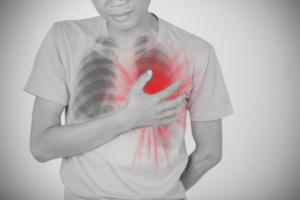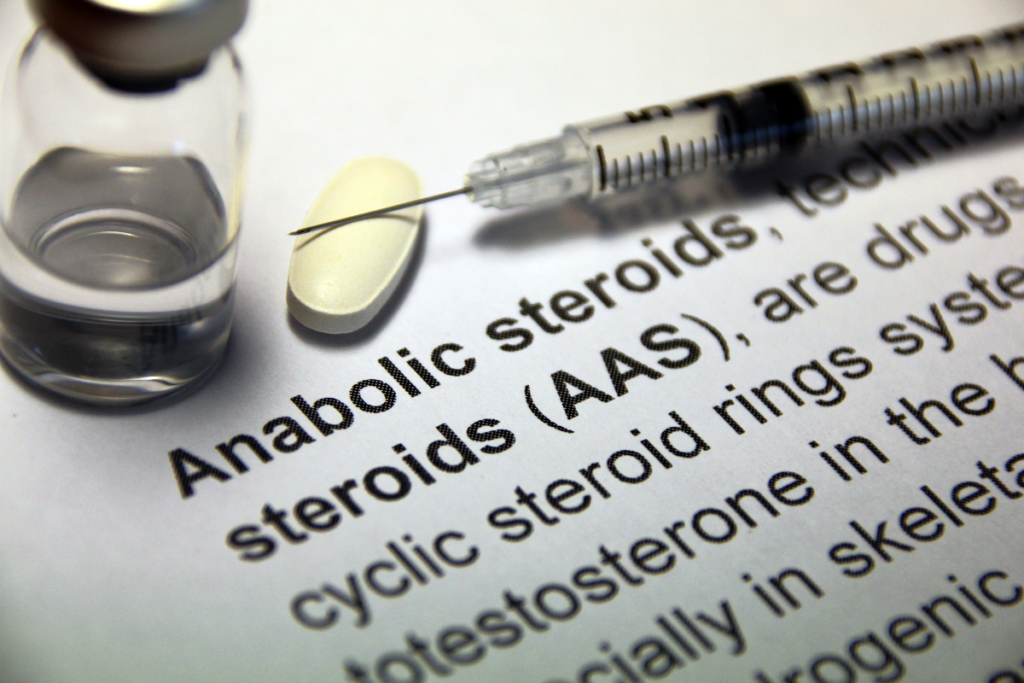Ever wondered if using steroids could affect your heart?
Whether you’re using them for medical reasons or muscle building, steroids can have a profound impact on your cardiovascular health. While steroids are often prescribed for conditions like arthritis, asthma, and inflammation, their long-term or excessive use—especially anabolic steroids used by athletes and bodybuilders—can lead to serious heart complications.
So, how exactly do steroids impact your heart, and what kind of heart problems can they cause? Are there any precautions you should take if you need steroids for treatment?
Well, if you’re concerned about your heart health while using steroids, keep reading to learn more!
Contents
Can Steroids Cause Heart Problems?
 Steroids, whether corticosteroids or anabolic steroids, can lead to a range of heart-related problems depending on their type and usage. While corticosteroids are commonly prescribed for inflammation and autoimmune conditions, anabolic steroids are often used by athletes and bodybuilders for muscle growth. Both, however, can negatively impact cardiovascular health when used improperly or for extended periods.
Steroids, whether corticosteroids or anabolic steroids, can lead to a range of heart-related problems depending on their type and usage. While corticosteroids are commonly prescribed for inflammation and autoimmune conditions, anabolic steroids are often used by athletes and bodybuilders for muscle growth. Both, however, can negatively impact cardiovascular health when used improperly or for extended periods.
Corticosteroids, commonly used to treat asthma, arthritis, and inflammation, can cause high blood pressure (hypertension), bad cholesterol, and can also lead to cardiomyopathy.
Anabolic steroids, which are synthetic versions of testosterone, are often used for muscle growth but have much more dangerous effects on the heart. It can:
- elevate LDL cholesterol levels and lower good cholesterol (HDL), leading to plaque buildup in arterieselevate LDL cholesterol levels and lower good cholesterol (HDL), leading to plaque buildup in arteries.
- increase the likelihood of abnormal heart rhythms, particularly atrial fibrillation (AFib).
- damage heart tissue, leading to heart failure.
- increases the tendency for blood clotting, increasing the risk of stroke and heart attack.
Can Steroids Cause a Heart Attack?

Yes, steroids can increase your risk of a heart attack, especially when used excessively or for long periods. Both corticosteroids and anabolic steroids can damage the cardiovascular system in ways that significantly raise the chances of a heart attack.
Remember, This Is Not Something to Ignore!
If you are using steroids for any reason—whether prescribed or recreational—you are putting your heart at risk. Heart attacks can happen suddenly and without warning, especially if you’re already dealing with high blood pressure, cholesterol imbalances, or weakened heart muscles. The longer you use steroids, the higher the chance of irreversible damage to your heart.
If you’re currently using steroids or suspect they may be affecting your heart health, don’t wait for symptoms to worsen. Seek medical advice immediately and get your heart checked. Steroid-related heart damage can be life-threatening, and it’s critical to address it before it’s too late.
What Heart Problems Can Steroids Cause?
Apart from serious conditions like a heart attack, steroids can lead to several other heart-related problems that can silently damage your cardiovascular system over time. Here are the key heart issues caused by steroids: High Blood Pressure, Increased Cholesterol Levels, Arrhythmias (Irregular Heart Rhythms), and Cardiomyopathy (Weakened Heart Muscles).
Steroids are not just a temporary fix for health issues—they can lead to long-term damage to the heart, even causing conditions like heart failure, strokes, and heart attacks.
How Can Steroid-Induced Heart Damage Be Prevented?
Preventing heart damage from steroids involves careful management and monitoring. Here are key steps to reduce the risk:
- Only use steroids as prescribed by a doctor and follow the recommended dosage.
- Never self-medicate or use steroids for non-medical purposes (e.g., muscle building) without professional guidance.
- Regular check-ups to monitor blood pressure and cholesterol levels while using steroids.
- Keep track of any side effects and report them to your healthcare provider immediately.
- Consider non-steroidal options for managing inflammation or autoimmune conditions, like biologic drugs or topical treatments.


 If you’re using steroids, it’s crucial to be aware of the early warning signs of heart complications. Steroids can silently affect your cardiovascular system, and identifying problems early can help prevent more serious issues. Here are the key symptoms to watch for:
If you’re using steroids, it’s crucial to be aware of the early warning signs of heart complications. Steroids can silently affect your cardiovascular system, and identifying problems early can help prevent more serious issues. Here are the key symptoms to watch for: